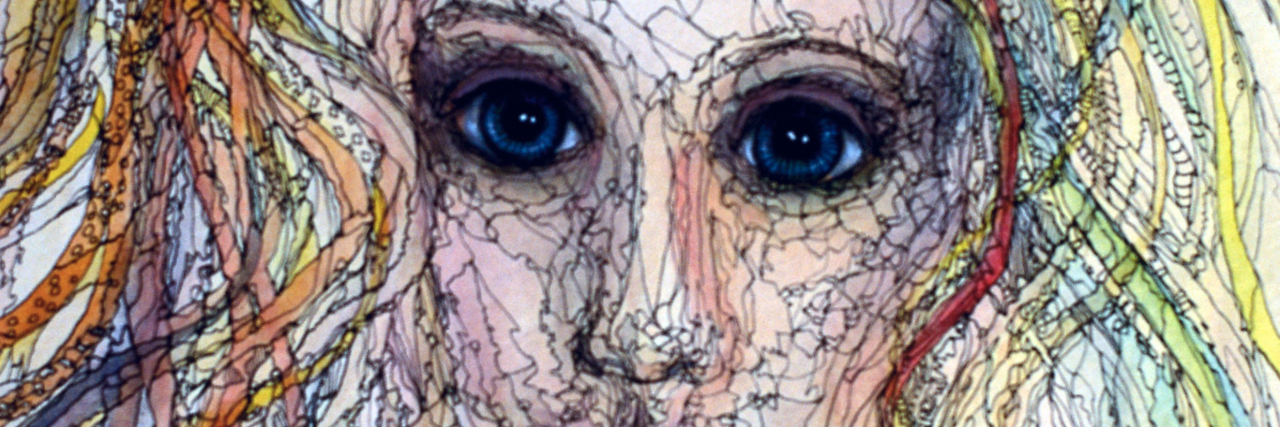Editor’s note: If you live with an eating disorder, the following post could be potentially triggering. You can contact the Crisis Text Line by texting “NEDA” to 741-741.
I recall several years ago when the idea of ingesting a single calorie filled me with overwhelming dread. I avoided eating wherever possible, and what small amount of food I consumed I forcibly threw back up. It was a cycle that barraged my self-esteem and body for seven years.
Fortunately, or so I thought, I entered recovery. My eating disorder had gone into remission. I learned to enjoy treats on occasion, while maintaining a relatively “healthy” diet. However, the occasional treats started to become staples in my diet. Pizza was a regular “treat” and I began eating at fast food places again, something I hadn’t done for over eight years. The occasional fast food visit is fine, but (I am embarrassed to admit) it was happening several times per week, and occasionally more than once in a single day.
I eventually began to gain weight. As pounds began to pile on, so did the weight of depression. I think as humans, when we are depressed, we do whatever it takes to eliminate such isolating, painful feelings. I drowned my depression in food — the one thing that gave me a false sense of control. The complexity of having a food related disorder arises because food is vital for survival. You can’t ever not have food in your life.
I became a binge eater, consuming whatever food would calm my cravings and emotions. My cravings were stress and depression induced, so my intake was full of refined sugars, heavy carbs and lots and lots of cheese. In moderation, any food is fine and it’s “normal” to enjoy what you consume. I, on the other hand, started eating until I was past full; to the point where my stomach ached. My weight increased drastically in just one year. Mind you, part of that was due to my limited mobility from chronic illness, but I think my dietary changes certainly impacted this.
What has helped me deal with this particular challenge is giving myself permission to eat. It sounds silly and simplistic, but by giving myself permission to have the foods I constantly was at war with, I realized that I actually could only have one or two slices of pizza instead of five or six. The harder I restricted in my head, the more “junk” food was my source of fuel. I distinctly recall thinking to myself, “no pizza for the next three weeks,” and the first thing I’d crave was, you guessed it, pizza.
What’s worse is that beyond weight, it impacted me other ways. I felt even more sluggish than my health conditions made me feel because it is true that what we eat is our energy source. I’m not saying to never eat “junk” food again, which by the way, is a term I disagree with due to negative connotations. I’m saying that we should learn the art of moderation.
To help myself avoid binge eating, I would include more veggies on my plate and lean proteins to help fill me up. That doesn’t mean leaving my treat of choice off my plate, it means I’m ensuring I include nutrient rich foods on the plate too. Regardless, the biggest lesson I learned here was this: pounds and size do not measure your worth. I have fat, but my only identifier shouldn’t be “fat.” I also have teeth, hair and fingernails — am I identified solely by those characteristics? No, I am not. And I think anyone who would identify someone based on those features is projecting their own insecurity.
I am identified by the driven, loving spirit inside of me. I am defined by the way I carry myself and the hope in my heart. There is no shame in having a body that societal perceptions tells you to hate. The beautiful thing about perception is that it isn’t fact and we can make the choice to alter our own to see things in a more positive light. I have altered my perception of my body, learning to treat it as the vessel that contains my personality and helps me travel through the world.
One of my favorite sayings that serves as a reminder to me to keep moving forward in recovery is, “Reason to love your body: how is hating it working for you?” Hating my body never has, nor ever will, work. I can not hate myself into a beautiful person. I can, instead, glow from within by nurturing my inner beauty. I think once you begin doing that, people pick up on your positive energies and it reflects the only beauty that is permanent and that matters. External beauty fades, whereas inner qualities remain and have the ability to flourish, if you let them. Think of your negative perceptions about yourself as weeds that crowd out the parts of you that deserve to blossom. Start plucking them one by one, and soon you’ll see just how beautiful your inner garden truly is.
If you or someone you know is struggling with an eating disorder, you can call the National Eating Disorders Association Helpline at 1-800-931-2237.
We want to hear your story. Become a Mighty contributor here.
Thinkstock photo via Jupiterimages

